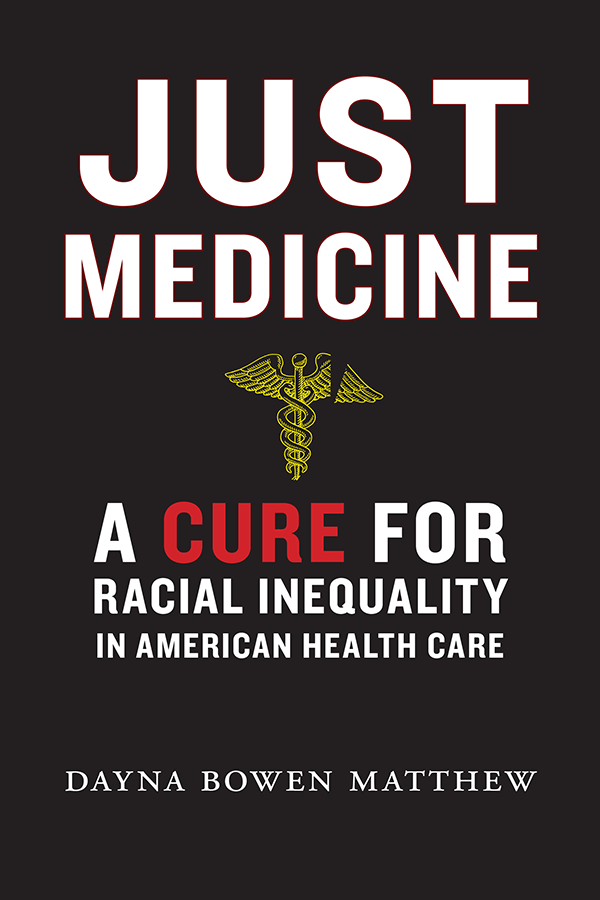—Dayna Bowen Matthew
 In the long-awaited King v. Burwell ruling last month, the Supreme Court took a major step forward in the fight to eradicate the racial and ethnic health disparities that result in the loss of over 83,000 black and brown lives in America each year. But just as the Court’s groundbreaking Brown v. Board of Education decision was not enough to guarantee equal educational opportunity for minorities in 1959, the Supreme Court’s ruling alone cannot ensure equality in American health care today.
In the long-awaited King v. Burwell ruling last month, the Supreme Court took a major step forward in the fight to eradicate the racial and ethnic health disparities that result in the loss of over 83,000 black and brown lives in America each year. But just as the Court’s groundbreaking Brown v. Board of Education decision was not enough to guarantee equal educational opportunity for minorities in 1959, the Supreme Court’s ruling alone cannot ensure equality in American health care today.
King v. Burwell hinged on the decision to uphold tax subsidies for those who purchased coverage through the Affordable Care Act (ACA). By affirming the constitutionality of the Affordable Care Act’s tax credits for individuals with household incomes between 100% and 400% of the federal poverty line, the Court’s ruling preserved the economic support that many low income families (by some estimates, over 26 million Americans) rely on to buy health insurance and access health care.
Beyond preserving the Act’s economic support, King v. Burwell also protected the Affordable Care Act’s nondiscrimination provisions. Section 1557 of the ACA is the first-ever civil rights provision to specifically prohibit discrimination in the health care industry. This statute could represent a turning point—a veritable Gettysburg—in the fight against racial and ethnic health disparities. But only if the Department of Health and Human Services (DHHS) makes full use of it.
Section 1557 breathes new life into Title VI of the Civil Rights Act and could be enforced to prohibit discrimination in health care based on race, color, or national origin. Thus far, the DHHS has applied Section 1557 successfully to combat sex discrimination in health care—important in its use to protect transgender patients, and ensure that providers treat men and women equitably in the context of hospital emergency departments. DHHS has also employed Section 1557 to win a number of significant agreements requiring providers across the country to ensure language access for persons with limited English proficiency. But HHS can, and must, go further.
The Department of Health and Human Services must use Section 1557 to challenge the well-documented discriminatory treatment practices that deny minority patients access to medical care for heart disease, diabetes, cancer, and a wide range of other illnesses. Section 1557 has yet to be leveraged to curb rampant discriminatory patient admission and transfer practices; differential pricing and prescribing of specialty drugs used to treat chronic diseases that disproportionately affect minority patients; gross under-representation of minorities in research clinical trials; or the shocking lack of diversity in the medical workforce, all of which are persistent contributors to disparate health outcomes for racial and ethnic minorities.
The deadly, disparate impact of these and other discriminatory practices can and should be the focus of new investigations and enforcement activities. Only then will we ensure an end to the legacy of inequality in America’s health care system.
Dayna Bowen Matthew is Professor at University of Colorado Law School and the Colorado School of Public Health. She serves on the faculty of the University of Colorado Center for Bioethics and Humanities, and she is co-founder of the Colorado Health Equity Project, a medical legal partnership whose mission is to remove barriers to good health for low-income clients. She is the author of Just Medicine: A Cure for Racial Inequality in American Health Care (NYU Press, 2015).
